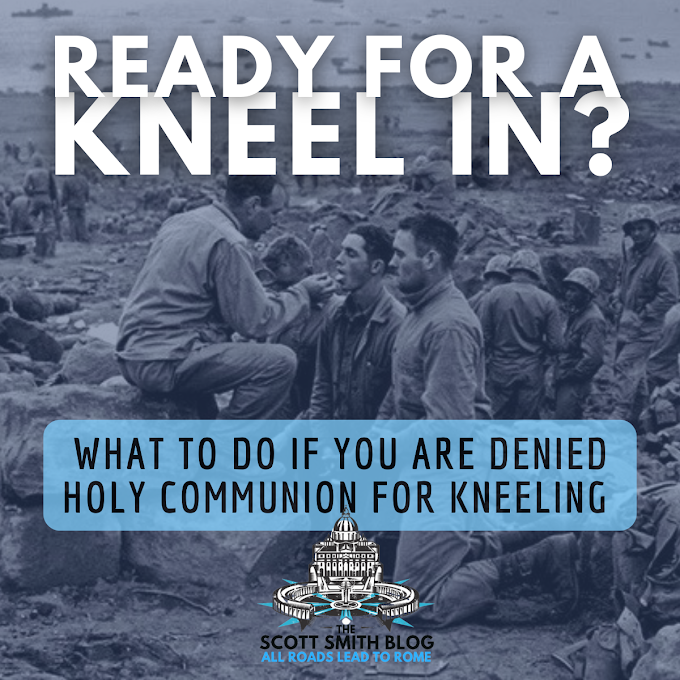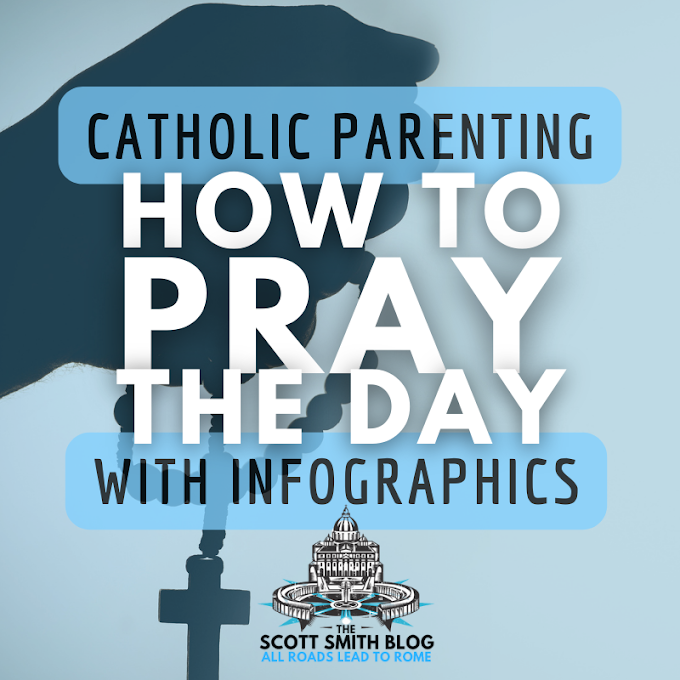Follow my blog with Bloglovin
Suddenly, I am advising hundreds of my clients as they write their Religious Exemption Letters. Whole hospitals full of doctors and nurses, if you can believe it. It's a wild time.
Your friendly, neighborhood Catholic attorney is here to help ... St. Thomas More, pray for us!
I am personally representing hundreds of doctors, nurses, and other healthcare professionals who are morally (and medically) opposed to the COVID-19 vaccine and/or vaccine mandate.
This article is not about the validity or invalidity of COVID-19 vaccine mandates. This is a guide to invoking your rights to religious freedom, as enshrined in the First Amendment of the U.S. Constitution. If you're wondering where these rights came from, I have also written this article on the Catholic origins of the Establishment and Free Exercise Clauses of the First Amendment - fascinating!
I pray this guide helps you and promotes the cause of religious freedom!
COMMENT BELOW with your questions, thoughts, and excerpts from your own exemption letters. Let's help each other craft new (legal) ways to connect this vaccine mandate to our religious convictions.
LEGAL DISCLAIMER: This article is for informational purposes only and does not provide legal advice. Please do not act or refrain from acting based on anything you read on this site. Using this site or communicating with Scott L. Smith, Jr., Attorney at Law, through this site does not form an attorney/client relationship.
General Considerations for a Religious Exemption Letter for the COVID-19 Vaccine Mandate
Write a Personal Statement; Do Not Just Sign a Form Letter
This is about your personal beliefs. I recommend a personally-written statement, not a form letter. A handwritten letter may even be a nice touch. This may depend on the quality of your handwriting, for better or worse. If you're handwriting is bad enough, you may be granted an exemption out of sheer frustration!
Be Concise!
A short and sweet personal statement is best. Don't give your employer's attorneys any rope to hang you by. As I will describe below, you can be Dickensian (wordy) in your religious autobiography. Be especially brief when you are connecting your beliefs to the vaccine.
Avoid Letters Signed By Your Priest, Pastor, or Other Clergy (Except to Supplement Your Personal Statement)
This is about you and what you believe. I do not believe in Moral Relativism, but the U.S. Constitution does!
Also, avoid letters signed by priest or other clergy because you don't want their positions or their boss' positions to change. The Pope or a bishop or the person or council to whom your clergy owes holy obedience may change their position. This might undermine the individual priest's position.
Nevertheless, feel free to supplement your personal statement with a letter signed by your priest or clergy. This clergy statement can be used to support your church participation or your argument as to why your religious beliefs are violated.
How to Write Your Letter: The Four Parts to a Religious Exemption Letter for the COVID-19 Vaccine Mandate
Here's the basic format of a Religious Exemption Letter for the COVID-19 Vaccine Mandate:
- Describe the depth of your religious practices to demonstrate that your religious convictions are deeply and sincerely held. How long have you been a practicing Catholic, born-again Christian, etc.? What religious activities have you undertaken, including weekly bible studies, pilgrimages, retreats, conferences, and volunteer activities? A longer history of religious practice is better for showing the depth of your convictions, but a recent conversion is acceptable, too. Your conversion, however, should not be conveniently just-in-time to request a religious exemption. That undermines your sincerity.
- Connect your sincerely-held religious beliefs to the COVID-19 vaccine. Why does the vaccine or other experimental treatment of COVID-19 violate your conscience and sincerely-held religious beliefs? There are many ways to approach this, some ways are more tested than others. I provide several examples below. Please comment below if you have successfully (or unsuccessfully) tried other reasons. The KEY here is to provide a reason which does NOT involve fear of bodily harm. Your fear of dying from the COVID-19 vaccine, unfortunately, is not protected by the U.S. Constitution - at least not under your First Amendment conscience protections. EX: "I believe the COVID-19 vaccines and experimental treatments violate my religious convictions, because __________."
- Do NOT base your objections on the following: fear of bodily harm, objection to force being used to mandate vaccinations
- The following may have a purely religious basis, but it is unclear at this time: violation of bodily autonomy, harm to fertility
- Invoke your rights. EX: "I am hereby exercising my constitutionally-protected conscience rights and requesting a religious exemption from the vaccine mandate/requirement."
- Optional: Invoke your right to be represented by an attorney. EX: "I request that any additional questions or clarifications be submitted to my attorney, who can be reached at _____, or that such be asked of me in the presence of my attorney." You are not strictly guaranteed an attorney in this context, as you would be in a criminal context. Nevertheless, depending on the state, governing authority, etc., it is improper for an opposing attorney, like your employer's attorney, to contact you directly once they know you are represented.
- Optional: Request confidentiality. See example confidentiality statements below.
Examples of Religious Reasons for Declining Vaccine
Trying to find these on the internet is really hard right now. The social media giants and search engine gods are censoring this material right now - may God help you find the help you need.
Here are some examples to use for the second bullet above, "Connect your sincerely-held religious beliefs to the COVID-19 vaccine". These examples come from client letters who were granted their religious exemptions. I have edited them only enough to avoid legal error. I have tried to preserve my client's beliefs.
If you use this examples, Remember to put them into your own words:
- My body is a Temple & vaccines defile my body because of (1) aborted baby cell lines and (2) DNA alteration:
- 1 Corinthians 6:19 states “Don’t you know that your body is a temple of the Holy Spirit, who is in you, whom you have received from God?” It is my belief that my body is the temple of the Holy Spirit and that the COVID vaccines violate the sanctity of my body by altering my DNA. I am also deeply troubled by the use of cell lines developed from aborted babies, which violates the sanctity of another’s body, as well as mine.
- [Most frequently used and accepted] My body is a Temple & vaccines defile my body because of aborted baby cell lines:
- "My belief is the COVID-19 vaccine will defile my body, which according to the Holy Scriptures is the temple of the Holy Spirit. The COVID-19 vaccines either use or were developed using fetal stem cell lines. These fetal stem cell lines are derived from abortions. The Holy Scriptures teach that abortions are abominable to God."
- Romans 12:1-2 states "I beseech you, therefore, brethren, by the mercies of God, that you present your bodies as a living sacrifice, holy and acceptable to God." Complying with the COVID-19 vaccine mandate would substantially conflict with my sincerely held religious beliefs, because, according to the cited Scripture, my body is sacred. I cannot defile the body God gave me by adding to it products derived from or developed using cells from aborted babies, among other defilements.
- "Defiling my body with substances corrupted by abortion would violate my sincerely held religious beliefs and the freedom to express those beliefs in a way that honors God."
- "I have religious objections to injecting myself with a product that used aborted fetal cell lines in its development or testing. The use of these COVID-19 vaccines, or any vaccines or experiment treatments for that matter, that use such products of abortion violate my deeply held religious beliefs in two ways. First, by honoring God by what I inject into my body. I believe that our body is a temple of the Holy Spirit and that I am called to honor God in how I care for my body as expressed in 1 Corinthians 6:19-20. Secondly, by advocating for the protection of sacred life. I strongly believe that we are all created in God’s image (see Genesis 1:26). My faith teaches that life in the womb is absolutely sacred (Psalm 139: 13-16). As a Christian, I wouldn’t knowingly use a product that was created, developed, or tested using aborted fetal cells."
- My body is a Temple & vaccines alter my immune system: I have been convicted by the Holy Spirit to defile my body no longer by altering my God-given immune system. I will not receive the COVID-19 vaccination for it will be a sin against my God to alter the immune system, which He designed, by the manipulation of my DNA or by other experimental treatments.
- My body is a Temple & vaccines alter my fertility: I believe that we are called to reproduce and to be "fruitful and multiply" (Genesis 1:28). Putting anything that may affect my fertility, such as oral contraception and the like, inside of my body is viewed as a sin, according to paragraph 2370 of the Catechism of the Catholic Church. I desire to stand true in my Catholic faith and decline the vaccination to honor my Church’s prohibitions regarding contraception, sterilization, and the like.
- NOTE: This argument is new, untested, and may stray too far into a "fear of bodily harm" argument. I advise this not be the only basis for your religious exemption. Morally speaking, this objection may also be dismissed through the Principle of Double Effect.
- The Holy Spirit instructed me not to take the vaccine:
- My objection to the COVID-19 vaccine requirement is based on the instruction of the Holy Spirit, Who lives within me and guides me to truth. The following Scripture verses detail the role of the Holy Spirit in my life:
- John 14:26 states “But when the Father sends the Advocate as my representative—that is, the Holy Spirit—he will teach you everything and will remind you of everything I have told you.”
- 1 John 2:27 states “But you have received the Holy Spirit, and he lives within you, so you don’t need anyone to teach you what is true. For the Spirit teaches you everything you need to know, and what he teaches is true—it is not a lie. So just as he has taught you, remain in fellowship with Christ.”
- John 16:13 states “When the Spirit of truth comes, he will guide you into all truth. He will not speak on his own but will tell you what he has heard. He will tell you about the future.”
- When the COVID -19 vaccines became available, I asked the Holy Spirit to guide me on the right path. Scripture instructs me to “Trust in the Lord with all [my] heart; do not depend on your own understanding. Seek his will in all you do, and he will show you which path to take” (Proverbs 3:5-6). As the Bible promised, the Holy Spirit instructed me and my conscience against taking the vaccines and other experimental treatments for COVID-19. Complying with the COVID-19 vaccination requirement would be in defiance against the word God gave to me and would prevent me from receiving His protection, His blessings, and eternal life.
Catholic Position on Use of Cell Lines Developed from Aborted Baby (Fetus) Cells
Here is a statement on the Catholic principles and beliefs violated by the COVID-19 vaccine mandate, which were provided in a document published by the National Institutes of Health:
The most morally questionable issue regarding vaccination in Catholicism is using cell lines derived from a voluntary aborted fetus. The Moral Reflection On Vaccines published by the Pontifical Academy for Life (20) suggests that these vaccines should be avoided and proposes a search for alternatives. The examples of such vaccines are cell lines WI-38 (Winstar Institute 38) and MRC-5 (Medical Research council 5), several live vaccines against rubella (Meruvax, Rudivax, MR-VAX), and vaccines against hepatitis (A-VAQTA and HAVRIX), chicken pox (Varivax), smallpox (AC AM 1000), and poliomyelitis (Polivax) (20,21). In the case where no alternative vaccine is available, the use of the existing vaccine is morally acceptable in order to avoid serious risks for children and for the whole population (especially pregnant women). The moral acceptability of using this vaccine should be comprehended as “passive material cooperation” and “active material cooperation” too, which is cooperation with immoral action without evil intention, permitted only in the case of “extrema ratio,” that is in the case of extreme situations such as saving the lives of children.
Example Language for Freedom of Conscience:
Protestant Statements of Freedom of Conscience:
- My religion acknowledges that “God alone is Lord of the conscience, and hath left it free from the doctrines and commandments of men, which are, in anything, contrary to his Word” (Westminster Confession of Faith, 20:2).
General Statements of Freedom of Conscience:
- For as long as I am of sound mind, it is my belief that I, under God, have the right to consent to or decline any medical procedure that violates my conscience.
Statements of Freedom of Conscience from American History:
- The U.S. Supreme Court stated in 1891: “No right is held more sacred, or is more carefully guarded by the common law, than the right of every individual to the possession and control of his own person, free from all restraint or interference of others, unless by clear and unquestionable authority of law.”
- George Washington, in a letter to the United Baptist Church of Virginia in 1789, penned, “Every man … being accountable to God alone for his religious opinions ought to be protected in worshipping the Diety according to the dictates of his own conscience.”
- In Virginia’s Declaration of Rights, George Mason stated the following: “... All men are equally entitled to the free exercise of religion, according to the dictates of conscience."
Example Requests for Confidentiality
These requests for confidentiality and privacy, as described above, are useful in demonstrating the personal nature of your beliefs:
- I also request confidentiality, as this is a highly personal matter of deeply-held beliefs for me.
- I ask that this request for exemption be kept 100% confidential as it contains thought and sentiments not shared in casual conversation and deeply personal to me
- The content of this letter is of an extremely personal nature
- The only reason we share this with you is because the law dictates that we do I ask that this be shared on an as-needed basis only; that is, only those charged with approving the exemption request should read our words.’
Applicable Laws Governing Workplace Exemptions:
The EEOC identifies four factors for an employer to consider when evaluating the sincerity of an employee’s religious exemption claim:
- Whether the employee has acted in a way that is inconsistent with the claimed belief;
- Whether the employee is seeking a benefit or an exception that is likely to be sought for nonreligious reasons;
- Whether the timing of the request is questionable; and
- Whether the employee has other reasons to believe that the employee is seeking the benefit for secular reasons.
References: Questions and Answers: Religious Discrimination in the Workplace | U.S. Equal Employment Opportunity Commission (eeoc.gov); plus additional reading
Court Cases on Religious Exemptions
Exemption Cases Involving Hospitals
In Bridges v. Houston Methodist Hospital et al., the hospital mandated vaccinations for its employees upon threat of termination. Although not specifically discussed in the case, the mandate apparently did not have a religious exemption. The plaintiffs were acting pro se and brought a wrongful termination action, not a claim under Title VII or the ADA, which the court dismissed and rejected.
Exemption Cases Involving Schools and Students
There are some cases involving students in which a religious exemption was upheld.
In Dahl v. Bd. Of Trustees of Wester Mich. Univ., the court granted an injunction against the WMU vaccine mandate for student athletes. The court ruled that, at least at the preliminary stage, WMU was prohibited from mandating vaccinations. WMU could, however, require plaintiffs to submit to weekly or more frequent testing and could require wearing of face coverings.
In Magliulo v. Edward Via College, a medical school mandated vaccinations, then changed its policy to allow for religious exemptions. The court prevented the school from mandating vaccination as a condition of enrollment. This was based in large part because of Louisiana state laws allowing for religious exemptions.












6 Comments